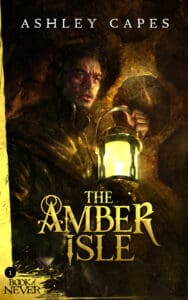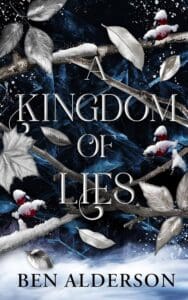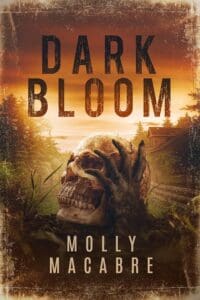
Synopsis
It’s the last summer for Kit Lamb: The last summer before college. The last summer with her high school basketball team, and with Dana, her best friend. The last summer before her life begins.
But the night before the big game, one of the players tells a ghost story about Daphne, a girl who went to their school many years ago and died under mysterious circumstances. Some say she was murdered, others that she died by her own hand. And some say that Daphne is a murderer herself. They also say that Daphne is still out there, obsessed with revenge, and will appear to kill again anytime someone thinks about her.
After Kit hears the story, her teammates vanish, one by one, and Kit begins to suspect that the stories about Daphne are real . . . and to fear that her own mind is conjuring the killer. Now it’s a race against time as Kit searches for the truth behind the legend and learns to face her own fears—before the summer of her life becomes the last summer of her life.
Mixing a nostalgic coming-of-age story and an instantly iconic female villain with an innovative new vision of classic horror, Daphne is an unforgettable thriller as only Josh Malerman could imagine it.
Review
When I decided to read Daphne by Josh Malerman, I was not expecting to be dabbing tears from my eyes at around sixty percent of my way through the book. Based on the synopsis, this seemed like a frightful, killer story with coming-of-age elements; what I read was a sucker punch to my heart. While I’m still relatively new to Josh Malerman’s work, his unique methods of storytelling and narration really pack an emotional blow, matched with the type of mounting dread associated with movies like It Follows. Kit Lamb’s senior year is in full swing with basketball games, hanging with friends, and most importantly, planning for the future. However, a seemingly harmless ghost story seems to resurrect a killer in the town of Samhattan. This killer has an agenda; she is working her way through annihilating each member of the girls basketball team, only appearing to them moments before their demise. Worst of all, Kit knows she’s next.
Daphne may not be seen as a conventional horror novel for a few reasons. First, there are no chapters; rather, there are sections and separations that jump between different basketball players’ points of view and entries into Kit’s personal journal. I was a bit apprehensive of the pacing and flow of the book due to this formatting, but ultimately it worked well given the slow building trepidation to an all-out cacophony of violence and mayhem. Second, this is one of those horror novels with a lot of heart, my preferred unofficial sub-genre of horror fiction. Yes, there is a murderous, large, urban legend of a woman knocking off teenage girls left and right. But more profoundly, the horrors of growing up are the real terrors in Daphne.
In perhaps one of the most creative, relatable ways that I have encountered in horror fiction, Malerman gets up close and personal with anxiety. There’s no shying away from the harsh realities and complexities in which anxiety shapes and molds a person, especially in young adulthood. In fact, my biggest takeaway from this whole novel is its dialogue with anxiety and what it really feels like to be frightened. I have written before about how meaningful it feels for horror fiction to allow readers to feel seen, but I don’t know that I have ever related to a whole chapter more than “Kit Lamb’s Journal – That Time.” Kit has a moment of clarity prior to Daphne’s return to Samhattan that she can quite literally be anything she wants, do anything she wants.
“A revelation like this is horrifying because it comes with pressure. You see? You can’t realize something like this and then not do anything about it. And here, I couldn’t even decide if I should turn down the dial. What if I turned it up and Mom came down and asked what I was doing and I told her I could do anything with my life and she said okay what do you want to do with it and I said I wanted to be a coach and she said okay then be a coach and THEN I got stuck on that path because I said it because I was too scared to say I don’t know? You see? I didn’t want to commit to anything because there was everything! Yet I knew if I didn’t do something I was gonna die about it.”
While this kind of realization in other coming-of-age novels is characterized as liberating or uplifting, Malerman explores the horror of such an idea, something I feel so deeply in my bones. Forget the gore and violence implemented in this novel, those are just devices used to bring the time of Kit’s eventual independence front and center to be confronted. The real terror lies in this freedom of choice; this almost paralyzing, insurmountable realization that your future is entirely in your hands. If there was ever a book I could have used in high school, it’s this one.
Now if you’re looking to pick up this novel for reasons other than the deeply relatable sentiments about growing up, there’s something for you here too, worry not. The legend of Daphne is told and retold throughout the novel, the narrative of her demise changing constantly like a game of telephone. There is a mystery element to this plot in trying to ascertain the truth of Daphne and why she is killing now. Ultimately, there is a twist in her story that I certainly wasn’t expecting. The efforts spent trying to understand and trace the origins of Daphne aid in fueling the plot forward, only to be accelerated by horrifying scenes of brutality as team players slowly realize the reality of their situation. It’s an all-around, solid horror novel for those reasons alone. Add Kit’s emotional strife, and this story takes flight.
In an oddly satisfying mash-up of mystery, violence, horror, and coming-of-age themes, Daphne utilizes these various working parts to paint a gripping picture. I picked up Daphne for the horrifying female-killer-on-the-loose premise, and I stayed for the close examination of anxiety and how it grows to be the fabric of our own person. My reviews are normally a bit more analytical regarding style, content, format, and pacing, but to be quite candid, this was such an emotional read, that I can’t help but pen an emotional review. Josh Malerman went so far as to include a note in the acknowledgments referring to the chapter I referenced above and his own experiences with anxiety. I am forever grateful for authors everywhere who not only share their vulnerabilities with us readers but turn these deeply personal facets into something that can be experienced by all. It certainly helps to not feel so alone.









Leave a Reply